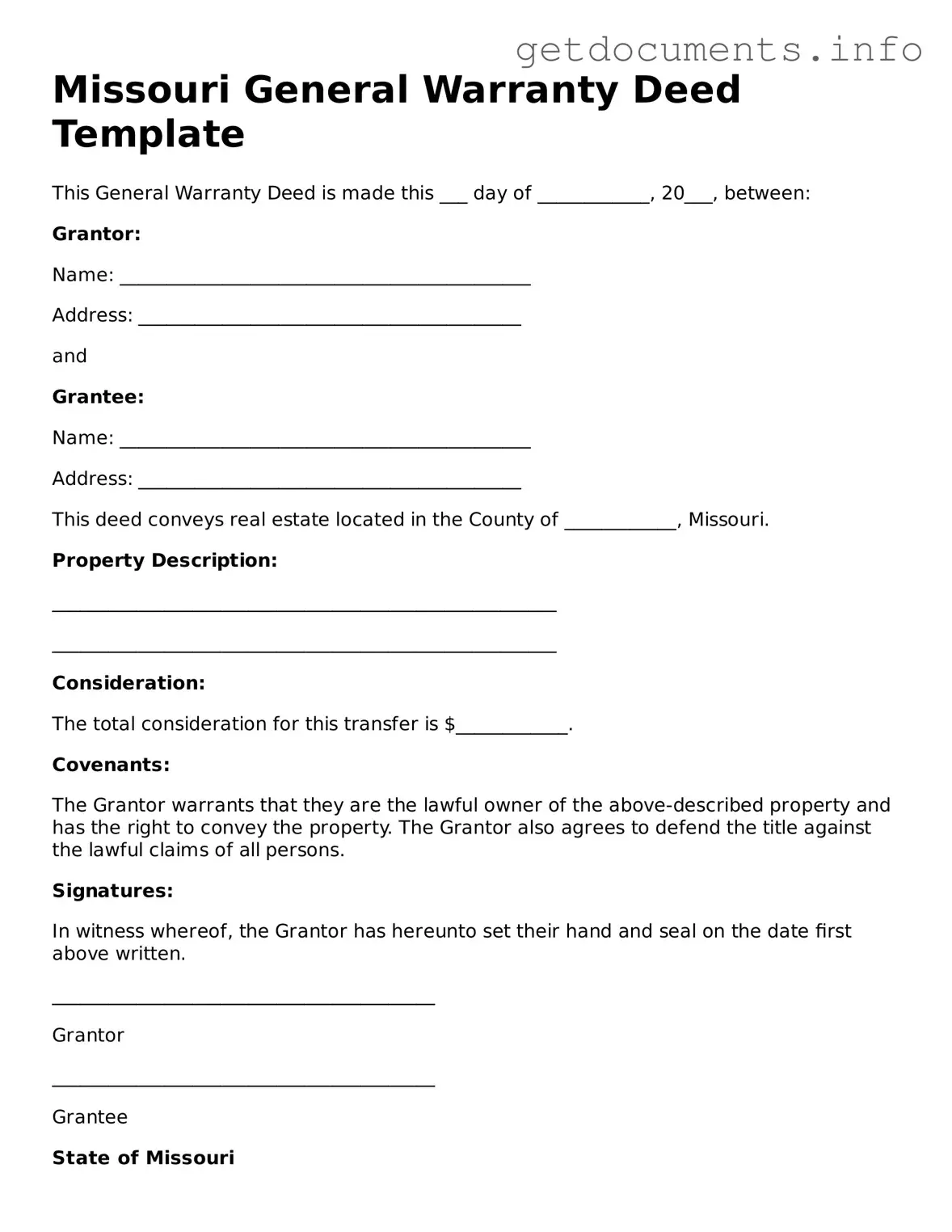Free Deed Template for Missouri
A Missouri Deed form is a legal document used to transfer ownership of real estate from one party to another. This form outlines the details of the property and the parties involved in the transaction, ensuring that the transfer is clear and legally binding. To take the next step in your property transfer, fill out the form by clicking the button below.
Access Deed Editor

Free Deed Template for Missouri
Access Deed Editor
Got places to be? Complete the form fast
Fill out Deed online and avoid printing or scanning.
Access Deed Editor
or
⇩ PDF File
